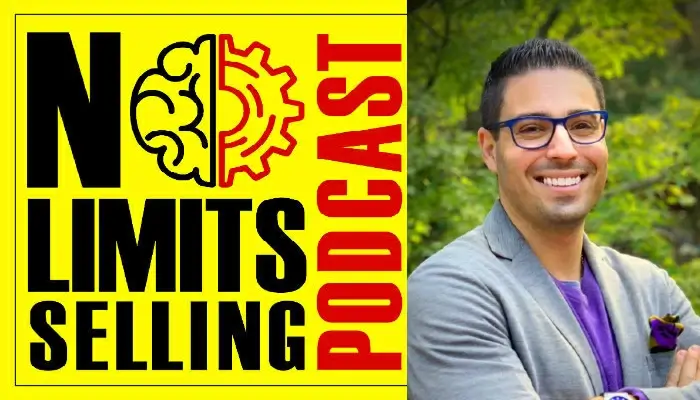The Art of Sales In Real Estate by Michael Schiff
Michael received his Bachelors Degree in Business from the University of Florida. He has since ventured back to his hometown of Baltimore, MD and began his Real Estate career in 2004. He has been responsible for over 350 million dollars of residential sales in the past 11 years and has extensive knowledge and experience with Designing, renovating & re-developing homes throughout the Baltimore Metropolitan Area. This podcast is about the art of sales in real estate.
Podcast Highlights:
- Build and retain strong relationships, this will accelerate your growth
- Find a model that is successful and follow it. don't reinvent the wheel
- Be authentic, this is where you are at your most powerful

Contact Michael:
- Website
[EDITOR’S NOTE: This podcast is sponsored by No Limits Selling. It is a fun, fast-paced podcast that delivers hard-fought business advice that you can implement today to improve your sales and performance]
Interested In Our Real Estate Coaching Services? Explore Our Website: Link
Feeling Not Well Today? You Can Use Our Mindset Boosters App To amp Up Your Mood: Link
Find us on Social Media:
LinkedIn | Facebook community | Instagram
Like what do you listen to? Subscribe to our podcast!
Ready to become fearless? We can help you become fearless in 60 days so you accomplish more in your career Schedule A 15 min Call with Umar
Summary
Introduction and Background
The transcript opens with a warm introduction of Michael Schiff, the CEO of Dovetail, a company that has made its mark in the business world. Schiff's journey into the realm of business started at a young age, working in his father's company. This early exposure to the business world, coupled with his experience in the software industry, has shaped Schiff into the successful entrepreneur he is today.
Understanding the Customer
A significant part of the conversation revolves around the importance of understanding the customer's needs. Schiff emphasizes that this understanding is not just about knowing what the customer wants but also about understanding their pain points and how a product or service can alleviate these. This customer-centric approach is the driving force behind Dovetail's product development strategy.
Challenges of Running a Business
Running a business is not without its challenges, and Schiff candidly discusses these. He talks about the complexities of managing people, the unpredictability of the business landscape, and the constant need to adapt and innovate. Despite these challenges, Schiff's passion for his work is evident, and he views these obstacles as opportunities for growth and learning.
The Art of Sales In Real Estate
Sales is an integral part of any business, and Schiff shares his insights on this crucial aspect. He emphasizes the importance of building relationships with customers, stating that sales is not just about closing a deal but about establishing trust and rapport. This relationship-centric approach to sales is what sets Dovetail apart in the competitive business landscape.
Advice for Aspiring Entrepreneurs
Towards the end of the conversation, Schiff shares some pearls of wisdom for those venturing into the world of business. He advises aspiring entrepreneurs to be patient, persistent, and passionate. He also stresses the importance of learning from failures and using these experiences to grow and improve.
Questions & Answers
Who is Michael Schiff?
What is the importance of understanding the customer's needs according to Michael Schiff?
What are some of the challenges of running a business as mentioned by Michael Schiff?
How does Michael Schiff view sales?
What advice does Michael Schiff give to aspiring entrepreneurs?
What is the main takeaway from the conversation with Michael Schiff?
Don’t miss this opportunity to transform your real estate career with one-on-one coaching. As an experienced real estate coach, I, Umar Hameed, am dedicated to helping you unlock your full potential and achieve your real estate goals. To learn more about who am I and my clients ↓
If you’re ready to take the next step, book an appointment with me today and begin your journey toward success in the real estate industry.
